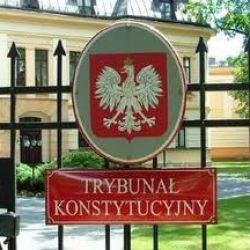The CT considered seven joint motions of the Human Rights Defender and Prosecutor General for assessing the constitutionality of provisions on the principles of access to telecommunication data, technical measures that may be used as part of covert investigative methods, the protection of professional privilege (such as legal professional privilege or journalistic privilege) and many others.
The CT ruled the provisions that empower secret services to access telecommunication data violated the constitutional right to privacy, as they “do not provide for an independent oversight of access” to such data.
“To implement this portion of the judgment the legislator will have to develop an effective oversight procedure and hence ensure protection from any abuse of power by the secret services, including the mass collection of data”, explains Barbara Grabowska, HFHR lawyer. “The CT has provided no details of how such oversight should be organised. It is not known yet whether it should be exercised by the court or another body, or whether it should be done before or after the secret services access data”, adds Ms Grabowska.
The provisions that are deemed unconstitutional will become invalid 18 months after the publication of the CT’s judgment in the Journal of Laws.
As for the provisions on “technical measures enabling the secret acquisition of information and evidence and recording the same” that are applied as part of covert investigative methods, the Constitutional Court entered an interpretative ruling. For instance, the provision of the Police Act stating that “a competent body requesting the use of covert investigative methods indicates a concrete legally defined type of technical measure (…) to be applied in a specific case” is consistent with the Constitution.
“In the opinion of the Constitutional Tribunal (…) it is not absolutely necessary to add to the statute an exhaustive list of technical measures that may be used as part of covert investigative methods”, argued in the oral reasons for the judgment the Judge Rapporteur Marek Zubik.
According to the judges of the Constitutional Tribunal, it is essential “to define in the law the types of available technical measures and oblige a body requesting the use of covert investigative methods to specify which technical measure may be applied in a given case.”
“Such a ruling is an attempt to construe the applicable laws in compliance with the Constitution”, says Dr Adam Bodnar, HFHR Deputy President. He continues saying: “Although the CT found such an interpretation of the provisions to be consistent with the Constitution it may turn out that the laws will have to be amended because nowadays even universally applicable provisions of law contain no guidance as to what types of technical measures may be used as part of covert investigative methods.”





